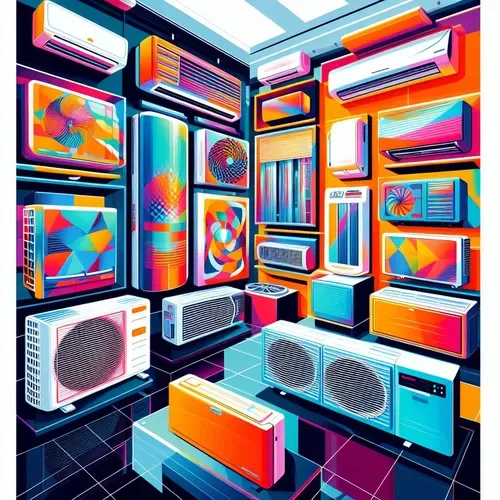Which Type of AC is Best for Indian Homes?
Introduction
Air conditioning become an essential part of our lives, especially in a tropical country like India. With scorching summers and humidity levels that can be quite challenging, choosing the right type of air conditioner for your home is crucial. In this article, we will explore the different types of air conditioners available in the market and discuss which one is best suited for Indian homes.
1. Window AC
Window air conditioners are the most common and traditional type of ACs found in Indian homes. They are compact and fit into a window frame or through a slot in the wall. Some key features to consider include:
- Easy installation: Window ACs are relatively easy to install, making it a popular choice for many households.
- Cost-effective: Window ACs are budget-friendly compared to other types of ACs.
- Cooling capacity: Different window AC models offer varying cooling capacities, so choose one that suits the size of your room.
2. Split AC
Split air conditioners have gained immense popularity in recent years due to their sleek design and superior cooling performance. Here are some factors to consider:
2.1 Split AC - Inverter Technology
Inverter technology in split ACs helps regulate the compressor speed according to the cooling requirements of the room. Benefits include:
- Energy-efficient: Inverter technology can save up to 30-50% energy compared to non-inverter split ACs.
- Quieter operation: Inverter ACs operate more quietly as the compressor doesn't turn on and off frequently.
2.2 Split AC - Dual Inverter Technology
Dual inverter technology takes energy efficiency a step further and provides precise temperature control. Key points to consider:
- Faster cooling: Dual inverter ACs can cool the room faster than regular inverter ACs.
- Consistent cooling: These ACs maintain a more stable and constant temperature.
3. Cassette AC
Cassette air conditioners are ideal for large rooms or commercial spaces due to their unique design. Important aspects to consider:
- 360-degree cooling: Cassette ACs are designed to provide uniform cooling in all directions.
- Aesthetics: These ACs are visually appealing as the main unit is nestled in the ceiling, leaving only the decorative panel exposed.
4. Portable AC
Portable air conditioners offer flexibility and mobility, making them a preferred choice for small apartments or temporary spaces. Consider the following features:
- Easy mobility: Portable ACs are equipped with wheels, allowing you to move them around as needed.
- No installation required: These ACs require minimal installation, making them a convenient option.
5. Central AC
Central air conditioning systems are suitable for larger homes or buildings. Here's what you need to know:
- Cooling capacity: Central ACs have the ability to cool an entire house or building efficiently.
- Ductwork: Proper duct design and maintenance are crucial for optimal cooling performance.
Conclusion
Choosing the right type of air conditioner depends on several factors such as the size of your room, budget, energy efficiency, and personal preference. Consider the specific requirements of your Indian home before making a decision. Remember, each type has its advantages and limitations, so choose wisely to ensure maximum comfort during hot summer months.
FAQs (Frequently Asked Questions)
- Which type of AC is the most energy-efficient?
- ACs with inverter technology, especially the dual inverter models, are the most energy-efficient options available in the market.
- Can a portable AC cool a larger room effectively?
- Portable ACs are designed for smaller spaces. For larger rooms, it is recommended to choose a split AC or central AC for better cooling performance.
- Are window ACs noisy?
- Window ACs can produce some noise, but newer models are equipped with features to reduce noise levels. Look for ACs with low noise ratings for a quieter experience.
- Is cassette AC suitable for residential use?
- While cassette ACs are commonly used in commercial spaces, they can be installed in larger residential areas as well. Consider your cooling requirements and aesthetics before opting for a cassette AC.
- How often should I clean the AC filters?
- It is essential to clean or replace the AC filters every 2-3 months, depending on usage, to ensure optimal cooling efficiency and maintain indoor air quality.

No comments:
Post a Comment